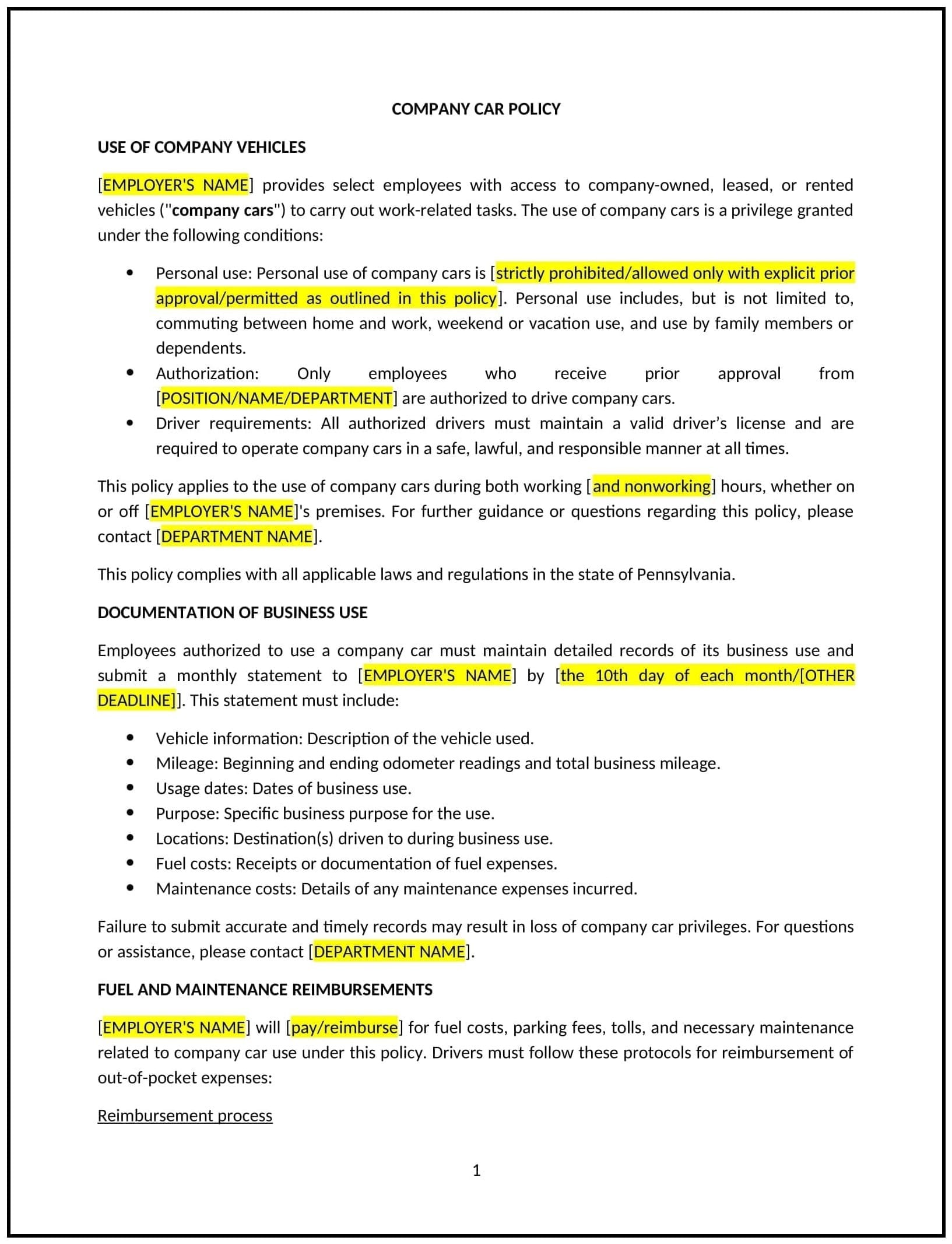Got contracts to review? While you're here for policies, let Cobrief make contract review effortless—start your free review now.

Customize this template for free
Company car policy (Pennsylvania)
This company car policy is designed to help businesses in Pennsylvania establish clear guidelines for the use, maintenance, and responsibilities associated with company-provided vehicles. Whether supporting employees in sales, fieldwork, or executive roles, this template provides structured guidance for ensuring efficient and responsible use of company vehicles.
By using this template, businesses can promote safety, reduce liability, and maintain a consistent approach to vehicle management tailored to Pennsylvania’s specific driving conditions and regulations.
How to use this company car policy (Pennsylvania)
- Define eligibility: Clearly outline which employees are eligible to receive a company car based on their role, responsibilities, or frequency of travel.
- Set usage guidelines: Specify the purposes for which the vehicle may be used, such as work-related travel, and whether personal use is permitted.
- Address maintenance responsibilities: Include details on who is responsible for vehicle upkeep, routine maintenance, and reporting issues.
- Establish safety protocols: Require adherence to Pennsylvania traffic laws, regular safety checks, and mandatory reporting of accidents or traffic violations.
- Reflect Pennsylvania-specific considerations: Tailor the policy to address local factors, such as winter driving safety, toll road use, and emissions testing requirements.
Benefits of using a company car policy (Pennsylvania)
A well-structured company car policy supports safety and operational efficiency. Here's how it helps:
- Promotes safety: Encourages responsible driving practices and compliance with Pennsylvania traffic laws.
- Reduces liability: Minimizes risks by setting clear expectations for vehicle use and maintenance.
- Enhances efficiency: Provides clear procedures for managing company vehicles, reducing misunderstandings and administrative burdens.
- Protects company assets: Ensures proper use and care of company vehicles to maintain their condition and value.
- Addresses local needs: Reflects Pennsylvania-specific considerations, such as winter road safety and toll road usage.
Tips for using a company car policy (Pennsylvania)
- Communicate expectations: Share the policy with eligible employees to ensure clarity on vehicle use, maintenance, and reporting procedures.
- Train employees: Provide training on safe driving practices and Pennsylvania-specific traffic regulations, such as winter weather precautions.
- Monitor vehicle usage: Use tracking systems or logs to monitor vehicle use and ensure compliance with the policy.
- Schedule regular maintenance: Create a maintenance schedule to ensure vehicles remain safe and reliable for business use.
- Review periodically: Update the policy to reflect changes in Pennsylvania laws, organizational needs, or fleet management practices.